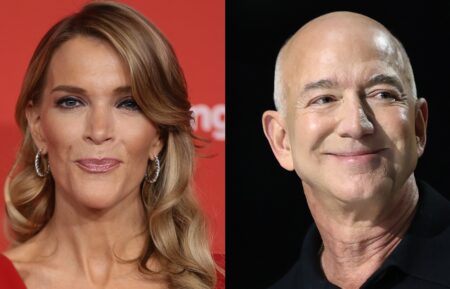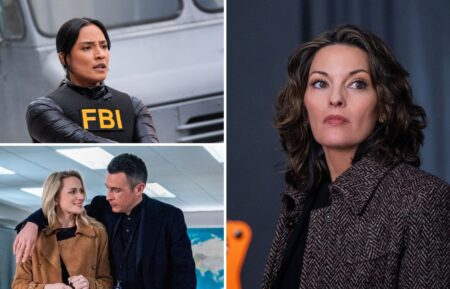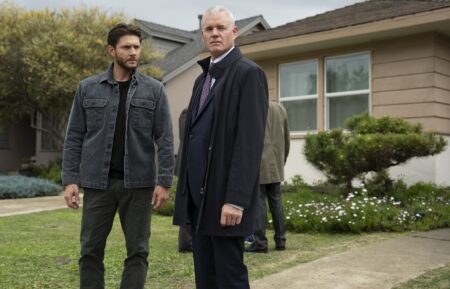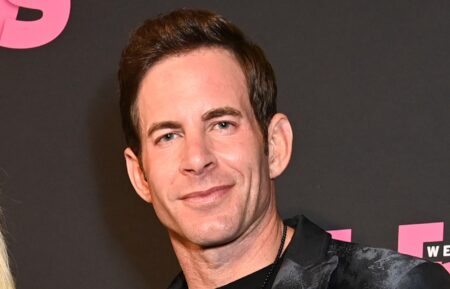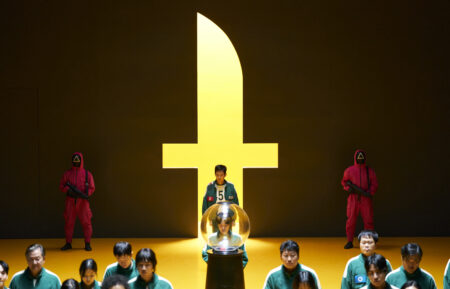WWE Alum Darren Young Recalls His Coming Out Experience: ‘I Own Who I Am’
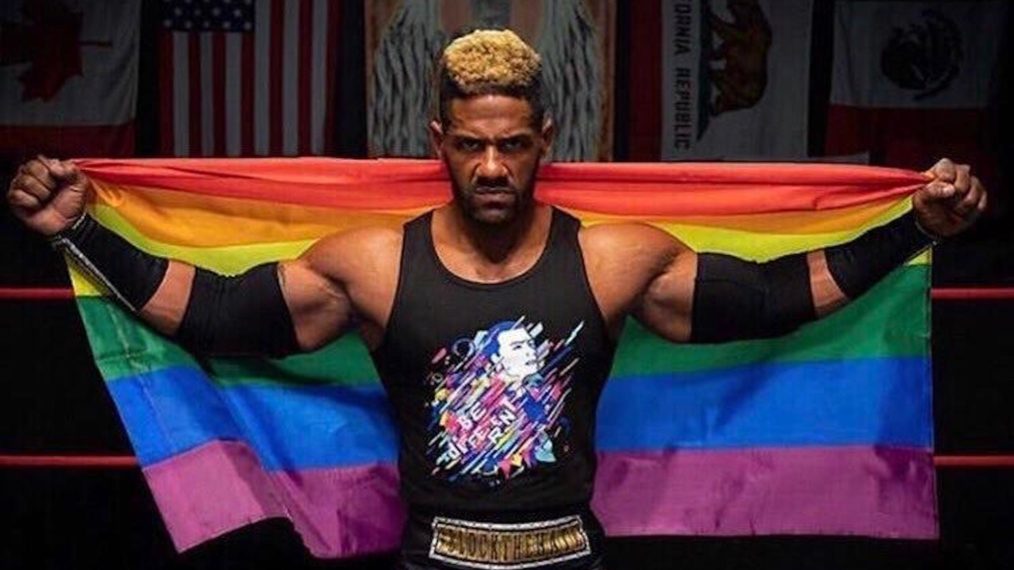
Q&A
Almost seven years ago, then-WWE superstar Darren Young made headlines when he revealed he happens to be gay. Days before SummerSlam 2013, the performer disclosed that fact during an interview with TMZ at LAX airport, making him the first out WWE player. It was a milestone moment not only for the pro wrestler, whose real name is Fred Rosser, but the industry as a whole.
Though he was initially worried about what the world at large would think, Rosser, who was let go from the WWE in 2017, quickly felt a weight lifted off his shoulders since the reaction was largely supportive. The 36-year-old went on Ellen and Today Show, hoping to inspire others.
“When I came out, people had reached out to me on social media. There was one who told me her friend, a big wrestling fan, came out to their family. It was that moment I realized my story was a big deal,” he said.
His fellow wrestlers welcomed him with open arms, too. “Guys like Randy Orton, Big Show, Mark Henry, Sheamus, Titus O’Neil, they made it a lot easier to walk into the locker room,” he continues. “I always say coming out also greatly improved my performance as an athlete and a person. Instead of worrying about what people thought of me or what they were saying, I was able to fully own who I am and focus my energy on my wrestling and my advocacy work. I say my fight is much bigger than any ring.”
With Pride Month in full swing, we talked to Rosser about the progress made, other LGBTQ wrestlers, leading by example and the growth of his “Block the Hate” movement.
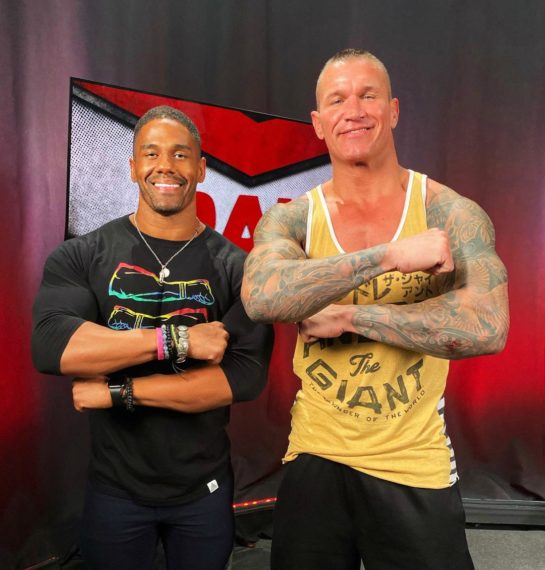
Darren Young and Randy Orton
Recently, WWE NXT superstar Jake Atlas opened up about his own journey coming out of the closet. What is it like for you to see others follow in your footsteps?
Fred Rosser: Representation is so important. We need more out athletes speaking up and speaking out. I always say I’m not the first or the last…I’m a trailblazer that was able to make it comfortable for Jake Atlas, Sonya Deville, to be [comfortable with] their truth. To be the first openly gay WWE superstar, I’ve been able to encourage wrestling fans all over the world to go after their dreams. Do not let the negativity of others derail your journey.
What kind of advice do you give other out wrestlers who are advocating for change?
I’m sure those other athletes I said echo those same sentiments I’m saying. I would bring positivity to the world by being the real you. We all collectively encourage others to do the same. We have to put ourselves out there and be a pillar for change. We have to be unwavering. That’s what it’s all about.
Sonya Deville has pushed for LGBTQ storytelling to be put into WWE television. Did you ever pitch a storyline during your tenure there?
When I came out, one of the first people to call me up was [WWE cofounder] Vince McMahon. He was happy I was courageous enough to come out. One of his best friends, Pat Patterson, is also gay. He said he didn’t want it to be a storyline. I was cool with it either way because I was finally able to be myself and live my truth. Recently when I was at the Sundance Film Festival, I spoke to a representative for GLAAD. They heard me talk and said WWE just isn’t ready for such a storyline. Nothing against me or anyone else, they just said WWE wasn’t ready for it. We’re making moves and making waves. I can’t control what WWE puts on TV. I can only control what I put out.
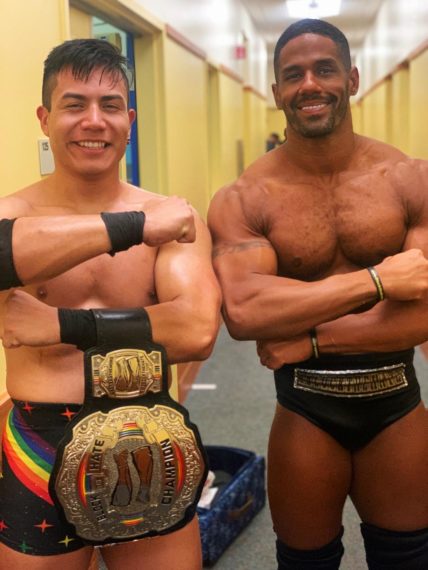
Darren Young and Jake Atlas
What do you think of their stance? Is WWE not ready for such a storyline?
For me, I stay ready so I don’t have to get ready. I think right now, more than ever, representation on TV is so important. I always say why not? Give it a shot. We’re in the entertainment business. We need to put smiles on people’s faces. We need to resolve issues in the ring. Real life issues, bring it to the ring. Why not?
I know you were supposed to be part of the WrestleMania week festivities before the pandemic forced events to be canceled. There was chatter that there would be some sort of reunion of Nexus, the WWE wrestling stable. Fellow WWE alum Stu Bennett (Wade Barrett) said in a recent interview how he turned down the opportunity. What are your thoughts?
Right before the pandemic hit, me and Wade were at a signing in L.A. We were just talking, and I told him I got contacted by WWE to be part of WrestleMania, and I said yes to it. He told me he said no because the money just wasn’t right. They didn’t really tell me what I’d be doing. They just said I would be doing network interviews and part of signings. I was cool with it. I always say if I would have done this for the money, I would have complained a long time ago. The money wasn’t right for Wade.
He didn’t quite know what he would be doing. He turned it down. I respect Wade. He is a great friend of mine, but the money has to be right for some people. I’ve been a fan since I came out of the womb. I miss WWE. I love being part of the WWE family. Recently, I was on their show The Bump talking about pride. If I ever got a call to come back, I would jump on it right away. I love the business, love everyone backstage. Any time I can go backstage and visit, everyone is so kind to me and genuinely misses me. Life goes on. I have my podcast, side hustles. I got to keep it moving.
You also have your “Block the Hate” campaign. How did that come together? I feel its message is as important as ever.
Diversity is America’s superpower. All I’ve ever wanted to do is make it better than what it was before for the LGBTQ+ people in wrestling and the world beyond. I wanted to make it better for everyone. The “Block the Hate” movement started with me being the first openly gay WWE superstar. It’s more than just LGBTQ+. On top of wrestling, I talk to kids all over the world whether they are in fifth grade or in college.
I do videos, especially during this pandemic, about the importance of speaking up and speaking out when you see someone being bullied. Suicide is something not really talked about. I’ve met several fans who contacted me on social media and told me they wanted to commit suicide. Now I always say I’m not a doctor or a psychiatrist, but I am a friend. I’ve got to be that support system for them, especially if they don’t have anyone in their family that supports them.
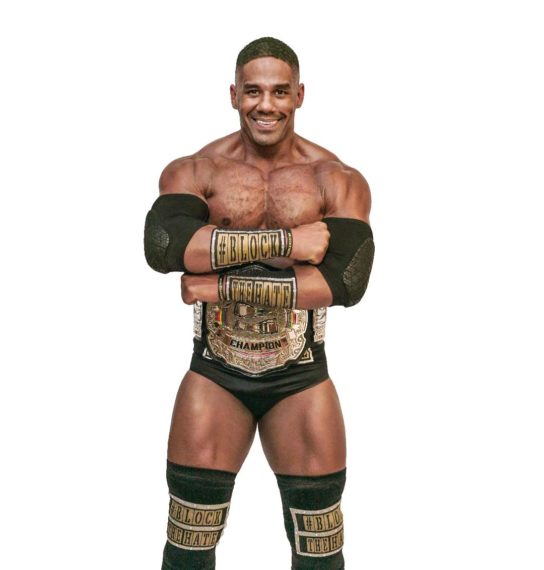
Nat Ho
Do you remember the first time you were discriminated against?
I never felt discriminated against [in wrestling]. I felt like if someone was going to lose to me, they didn’t want to lose to me because of my sexual orientation. I always joke around on my podcast that if this was real, I would probably be one of the toughest guys in the locker room. I think there were times someone didn’t want to lose to me or take the pinfall. But it is what it is.
Where do you think we are in the wrestling landscape in terms of inclusiveness?
We still have a long way to go, but we are making moves. Just like [“Making Moves”] my theme song from WWE. “Making moves, making moves, making million dollar moves.” We’re making moves to be accepted and to put yourself out there and be a superhero. For me, I’m going to be that superhero for the LGBTQ [community] or anyone that gets bullied. We’re still a long ways away. With the new law passed from the Supreme Court for people in [jobs] not to be discriminated against in all states in America, that’s huge for us. [On June 15, the U.S. Supreme Court ruled that federal law protects gay, lesbian and transgender people from employment discrimination.] Nobody wants to be discriminated against for their sexual orientation. For them to pass that, it’s amazing. We have a long way to go. But there is progress.
From TV Guide Magazine
How 'Countdown' Recruited Jensen Ackles to Go Full 'Die Hard'
Countdown boss Derek Haas talks creating the character around Ackles, and the cast teases the “Avengers”-like team of the crime thriller. Read the story now on TV Insider.




